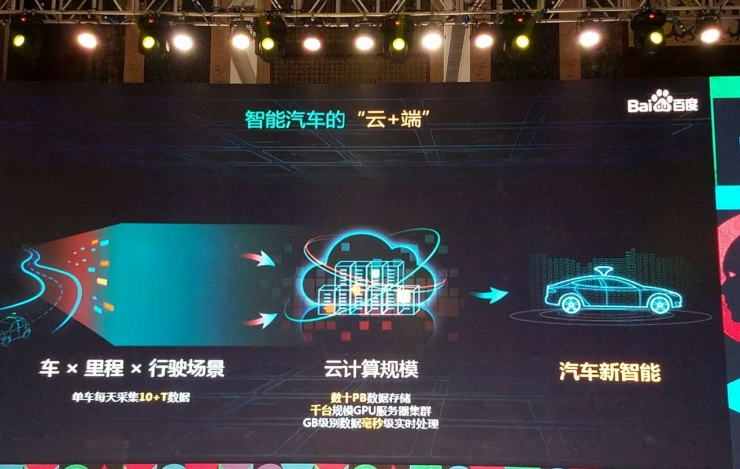Wang Jin, senior vice president of Baidu and general manager of the Autopilot Division, was invited to attend the CCF GAIR conference. On the morning of the 13th, he delivered a speech at the conference and discussed Baidu's practice in the driverless field. He first introduced three trends: Trend 1: The new energy of automobiles, lowering the manufacturing threshold New energy sources bring great differences to the automotive industry, and the manufacturing threshold of automobiles is decreasing. Compared with traditional cars, the total number of parts for electric vehicles is one-third that of traditional cars, which has inspired many cutting-edge companies in the automotive industry to enter the industry. In the past one hundred years, some consolidations have taken place, but there are only a few new ones entering the industry. Only Tesla and many new Chinese companies have entered the electric vehicle industry. Trend 2: Car sharing, efficient elimination of inefficiencies According to the shared economy represented by Uber and Dripping, US statistics, a private car is stopped 95% of the time, and only 5% of the time is open. Of the 5% of people using this car, 76% had only the driver in the car. So most of the cars are parked. When they stop, cars can't be enjoyed. This is a burden for most people. Trend 3: Intelligent Vehicles, Automated Driving Trend Intelligentization consists of two parts, one is car networking and the other is driverless driving and automatic driving. Almost all of the world’s more important automakers are now involved in this and are doing research and development in this area. There are more than two car companies in China, saying that all of them are counted in more than 80. The world's most important large manufacturers have more than 20, but there are more than 80 in China, and there are probably mass production car companies. More than 40 people with a little bit of strength are basically investing in autonomous driving. There is another force in the world that is doing autopilot. This force is Internet companies and high-tech companies. Wang Jin said that car companies generally start with low-level assisted driving and hope to achieve full future driverless driving by continuously upgrading their ability to assist driving. The ultimate goal is the same, but the road is different. Their idea is to focus on costs and gradually increase safety. Baidu, Google's path is to buy the most expensive sensor. According to Wang Jin, Baidu purchased a laser radar worth RMB 700,000 last December. In addition, Baidu’s on-board brain is also a nearly 200,000 server. The idea of ​​Baidu is to use the best computing power and the best sensors to protect the safety of unmanned vehicles. Wang Jin expressed the hope that in the next few years, through the efforts of industrialization, the price of sensors will be reduced to an acceptable level for the general public. In addition, Wang Jin also said that Baidu's more expensive investment in the field of automated driving in the cloud, in the entire data to use very large clusters to learn the ability of auto-driving. The cloud is equivalent to a driving school. What happens when you encounter a new situation with massive data learning. After the model matures, it is downloaded to the car. When the car encounters a scene, it can be immediately processed in real time. "Processing is very fast, within 100 milliseconds." Wang Jin said that automotive intelligence is a "cloud + end" technology. When smart cars interact with traffic in real time, real-time interaction between cars and cars, traffic efficiency can be greatly improved. Driverless industrialization, the cost will be much lower than the cost of a taxi. To do well without driver, it will greatly improve traffic safety, traffic efficiency and its economic benefits, making people's travel costs even lower. Wang Jin also said that Baidu's artificial intelligence mainly relies on three cores: algorithms, massive data, and excellent computing capabilities. Baidu launched the first version of the driverless car in December last year and has now upgraded to version 3.0. At the end of last year, Baidu announced that it would be able to commercialize small-scale Baidu driverless cars within three years and mass-produce them five years later. Wang Jin said that the real industrialization of drones requires the participation of the entire industry chain, which also requires the joint efforts of the government, insurance companies, car companies, and parts suppliers. Welcome attention to new intellectual driving. WeChat added "AI-Drive" or "New Driver" to subscribe to the public number. Guangzhou Ehang Electronic Co., Ltd. , https://www.ehangmobile.com

